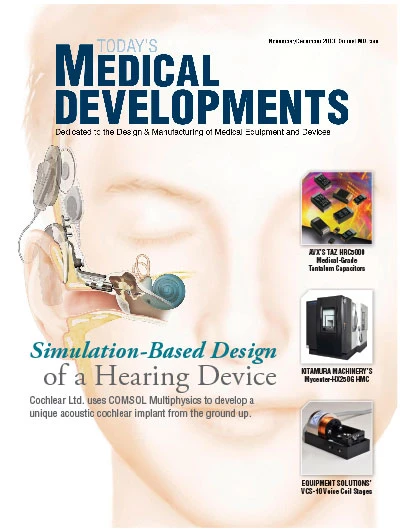The U.S. FDA Unique Device Identifier (UDI) mandate was initiated to enable better traceability of medical devices throughout the supply chain and to improve the information available for managing product quality issues that could potentially impact the patient. Other global health authorities are also enacting similar requirements with which multinational companies will soon have to comply. The UDI mandate begins in 2014, and medical device companies must develop an enterprise strategy to satisfy these global requirements. Class I, II, and III medical devices will be impacted by the new FDA rule and device companies will need an extensive IT platform that will synchronize multiple product data streams on an ongoing basis.
According to research from Gartner Inc., “The increased adoption of data standards by manufacturers means that IDN supply chain leaders that don’t adopt these standards will be left behind, while those that do will enjoy competitive advantage.”1
“To address the medical device industry’s need to be compliant with the FDA unique device identifier requirements by the rapidly approaching deadline, we have worked with Inspirage to develop a rapid start deployment process to achieve a UDI foundation," states Marc Perlman, global vice president, healthcare and life sciences, Oracle. “The Inspirage and Oracle UDI solution based on Oracle’s Agile Product Lifecycle product will help medical device companies quickly prepare for the UDI deadlines. Perhaps more importantly, this solution drives inherent business value for medical device companies while achieving compliancy. This makes the UDI initiative a strategic investment versus tactical execution of a regulatory process.”
The Inspirage and Oracle solution provides a solution to help companies quickly adhere to UDI standards and build a foundation for driving value throughout the process. Legacy UDI attribute data can then be managed under FDA 21 Code of Federal Regulations (CFR) part 11 revision control and synchronized with each stock keeping unit (SKU)/global trade item number (GTIN) to provide an auditable archive. In addition, the medical device identifier attributes associated with the unit of use for each product can be managed across multi-level packaging hierarchy configurations to support enterprise use of this critical data. The process then enables UDI to attribute reporting to the FDA GUDID through the FDA gateway server. Oracle and Inspirage, a platinum level member of Oracle PartnerNetwork (OPN), have developed an automatic generation of the HL7 SPL XML UDI data in a submission-ready format, which requires no annual subscription cost through industry data pools.
Additional capabilities can be added to the Inspirage and Oracle UDI solution, such as data cleansing, validation, and other value-added functionality by leveraging other Oracle products. The solution can be further enriched to enable searching of multiple data sources and identification of inconsistencies in attribute taxonomy, which can be cleansed, validated, and shaped into a standard format for enterprise synchronization with all GTINs.
Elizabeth Engler Modic is the editor of TMD and can be reached at emodic@gie.net or 330.285.5421.
1 "Get Ready for Mandatory Unique Device Identifiers in Healthcare," by Eric O'Daffer, Steven Lefebure, Todd Applebaum, Vi Shaffer, July 1, 2013.
Gartner does not endorse any vendor, product or service depicted in its research publications, and does not advise technology users to select only those vendors with the highest ratings. Gartner research publications consist of the opinions of Gartner's research organization and should not be construed as statements of fact. Gartner disclaims all warranties, expressed or implied, with respect to this research, including any warranties of merchantability or fitness for a particular purpose.
Get curated news on YOUR industry.
Enter your email to receive our newsletters.
Explore the November December 2013 Issue
Check out more from this issue and find your next story to read.
Latest from Today's Medical Developments
- Pioneering battery-free cardiac implants
- KBC Tools & Machinery marks its 60th anniversary, Founder’s Day
- Address the challenges of machining high-temperature aerospace components
- Elevate your manufacturing operations with April’s Manufacturing Lunch + Learn
- AdvaMed statement on tariff announcement
- Collets – Not all are created equal
- ENGEL expands production capacities in the Americas; new plant opened in Mexico
- MFI brings fast, high-polishing additive parts finishing to Rapid + TCT 2025







